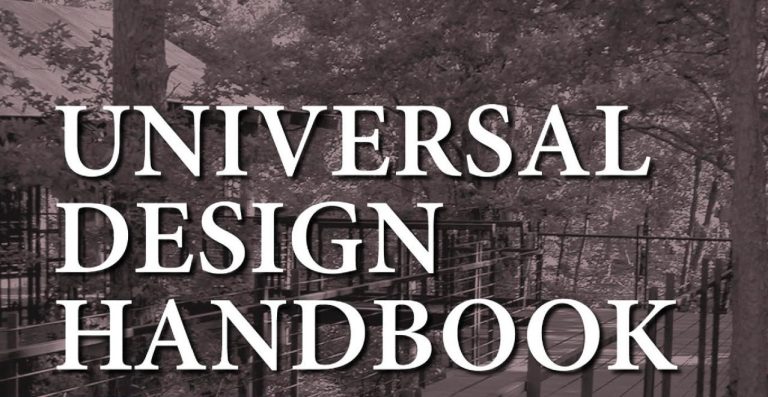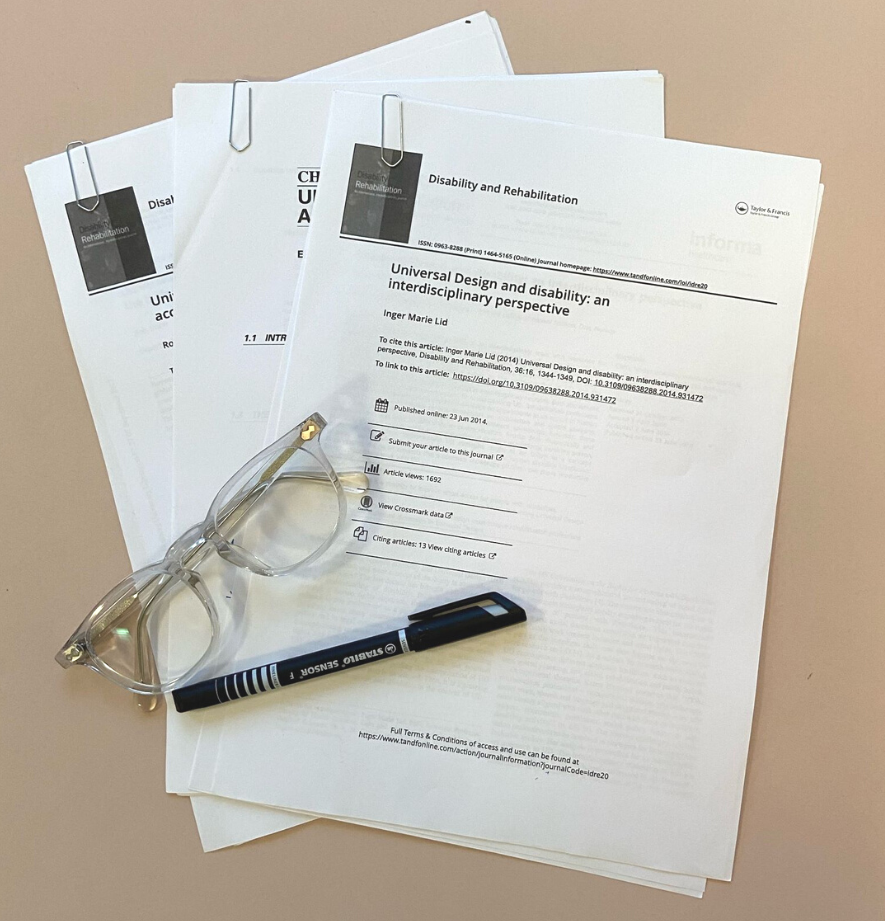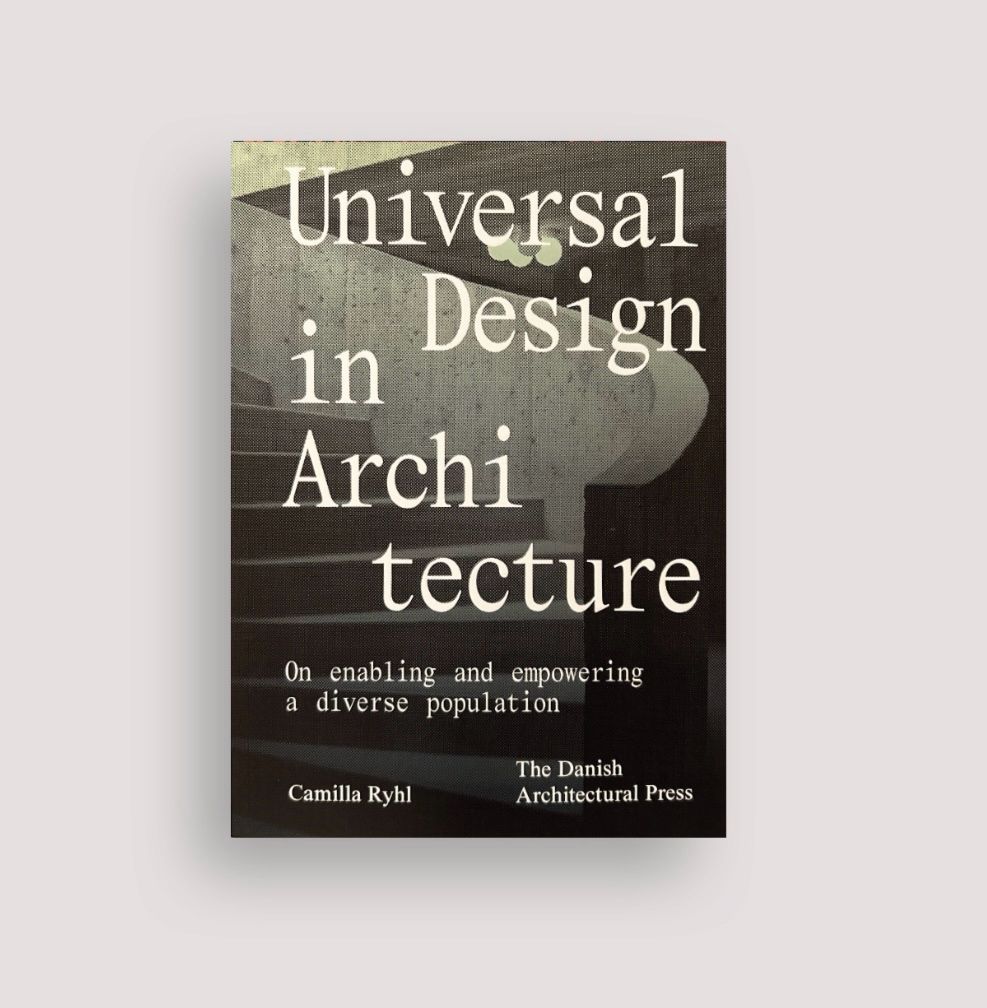This self-study module provides a mix of book chapters, digital talks and lectures, scientific papers, and a website on the general theme of Universal Design.
The module consists of 6 mandatory references for you to study at your own pace during Ideation.
You are encouraged to expand your investigations beyond the module, and to seek advice and inspiration from the peers and experts you meet during Ideation.
Reference: Ryhl, Camilla (2022) Universal design. Universal Design Hub – Bevica Fonden.
Format: Video (3 minutes)
Keywords: Universal Design, History, Inclusion, Inclusive design, Design for all
Description: This video briefly summarizes the fundamentals of Universal Design. It examines the applicability of Universal Design and how it encompasses all aspects of our life. Ultimately, Universal Design is a value-based design principle that ensures equal and inclusive solutions for all – regardless of abilities.
Link: https://universaldesignhub.dk/universal-design/
Reference: Ostroff, Elaine (2010) Universal design: an evolving paradigm. In: Universal Design Handbook. Preiser, Wolfgang & Ostroff, Elaine (eds.) New York: McGraw-Hill. Chapter 1, pp. 34-42.
Format: Text (Work load: 10 pages)
Keywords: Introduction to Universal Design, Convention on the Rights of Persons with Disabilities (CRPD), Historical and Cultural perspective
Description: Elaine Ostroff introduces Universal Design as an evolving paradigm and offers a historical and cultural perspective by placing Universal Design in different contexts such as Universal Design and Education, Universal Design and Business, Universal Design and Society.
Access: Can be retrieved from your educational library

Reference: Hedvall, Per-Olof (2024) Universal design. Universal Design Hub – Bevica Fonden.
Format: Video (5 minutes)
Keywords: Universal Design, Accessibility, Usability, UN Convention on the Rights of People with Disability (CRPD), Swedish Context
Description: In this video, Professor of Design at Mid Sweden University, Per-Olof Hedvall, briefly argues how we need to work with accessibility, usability and universal design to raise awareness of what is important for whom, who can go where, do what, and contribute to which areas in society. Moreover, Per-Olof stresses how we need to seek out the variation of users, the outer edges of use, and situations of users. This needs to be done while actively asking questions – not only about who is present; who is here but struggles; but also who is absent, and why the so called non-users often are forgotten or left out.
Reference: Steinfeld, Ed & Maisel, Jordana (2012) What is Universal Design. University at Buffalo – Center for Inclusive Design and Environmental Access (IDEA).
Format: Text (8 pages)
Keywords: Universal Design, History, 7 Principles, 8 Goals, Overview of Universal Design
Description: On this webpage, Center for Inclusive Design and Environmental Access (IDEA) at University of Buffalo shortly describes the concept of Universal Design and its historical context and 7 principles, which were added in 1997 to clarify the scope of Universal Design. In addition, the webpage briefly exemplifies the 8 Goals of Universal Design developed by Ed Steinfeld and Jordana Maisel in 2012 to expand the conceptual framework of Universal Design beyond usability to include social participation and health, acknowledging the role of context in developing realistic applications.

Reference: Iwarsson, Susanne & Ståhl, Agneta (2003) Accessibility, usability and universal design positioning and definition of concepts describing person-environment relationships, Disability & Rehabilitation, 25:2, 57 – 66.
Format: Text
Keywords: Accessibility, Usability, Method, Universal Design
Work load: 9 pages
Description: This paper introduces an instrumental, three-step definition to accessibility, emphasising that accessibility includes personal as well as environmental components. Suggesting the introduction of an activity component, accessibility is replaced by a more complex term, usability. Universal Design is highlighted as a more process-oriented but less stigmatising concept.

Reference: Lid, Inger Marie (2014) Universal Design and disability: an interdisciplinary perspective. Disability and Rehabilitation, 36:16, 1344-1349.
Format: Text
Keywords: Interdisciplinary Field of Knowledge, Convention on the Rights of Persons with Disabilities (CRPD), Human Plurality
Work load: 6 pages
Description: This is a theoretical paper. It discusses the understanding of Universal Design as an interdisciplinary theme and the significance of Universal Design in research and teaching. The paper builds on literature and focuses on how to recognise Universal Design in interdisciplinary contexts.

Reference: Ryhl, Camilla (2024) Universal Design in Architecture – On enabling and empowering a diverse population, Copenhagen: The Danish Architectural Press. Chapter 1, pp. 14-29.
Format: Text
Keywords: Universal Design, History, Nordic context
Work load: 10 pages
Description: This book chapter outlines the history of Universal Design and the evolution of Universal Design with in the Nordic context.

Hedvall, Per-Olof; Price, Margaret; Keller, Johnna; Ericsson, Stina (2022) Towards 3rd generation universal design: Exploring nonclusive design. Studies in Health Technology and Informatics.
Hamraie, Aimi (2013) Designing Collective Access: A Feminist Disability Theory of Universal Design. Disability Studies Quarterly (DSQ). Vol. 33 No. 4 (2013): Special Issue: Improving Feminist Philosophy and Theory by Taking Account of Disability.
Story, Molly (2010) Principles of Universal Design. Universal Design Handbook, Edited by: Preiser, Wolfgang & Smith, Korydon. New York: McGraw-Hill. Chapter 4, pp. 58-67.
Center for Independent Living – Berkeley (2024) The 7 Principles of Universal Design. https://www.youtube.com/watch?v=G-tHuD7R8cs
Story, M.; Mueller, J.; Mace, R. (1998) The Universal Design File: Designing for People of All Ages and Abilities. North Carolina State Univ., Raleigh. Center for Universal Design.
Froyen, Hubert; Verdonck, Evelien; De Meester, Dirk; Heylighen, Ann (2009) Mapping and documenting conflicts between Users and BuiltEnvironments. Conference: Include 2009.
Gissens, David (2023) The Architecture of Disability: Buildings, Cities, and Landscapes beyond Access. University Of Minnesota Press.
Aslaksen, Finn; Bergh, Steinar; Bringa, Olav Rand; Heggem, Edel Kristin (1997) Universal Design – Planning and Design for All. The Norwegian State Council on Disability.
Erdtman, E.; Rassmus-Gröhn, K.; Hedvall, P.-O. (2021) Universal Design as Guiding, Striving and Unifying: A Qualitative Study about how Universal Design is Understood, Practised and Realised in Contemporary Sweden. Scandinavian Journal of Disability Research, 23(1), 158–168.
Institut for Blinde og Svagsynede (2022) Blind Lyd – Podcast: 1. Nordisk kongres i Synspædagogik: Universelt design. https://www.podbean.com/media/share/pb-65mkw-12dad45
Sarah Houbolt (2017) TEDxSidney: Designing for Function and Universal Access. https://www.youtube.com/watch?v=DRWgQrd7y2c
Robier, Hannes (2024) Human-Centered ISO Standards. https://www.linkedin.com/pulse/human-centered-iso-norms-hannes-robier-qdhzc/?trackingId=z9GGJjQnSFivYyLFM9rybw%3D%3
Ryhl, Camilla (2024) Universal Design in Architecture – On enabling and empowering a diverse population, Copenhagen: The Danish Architectural Press.